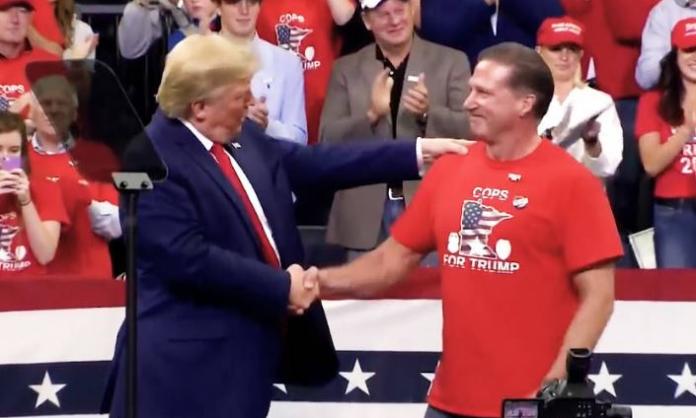After the police murder of George Floyd, Lieutenant Bob Kroll was among the first to defend the cops and attack the victim. Kroll, the president of the Minneapolis police union, wrote to his members describing Floyd as a ”violent criminal” and the outpouring of protest in response to his killing a ”terrorist movement”.
When Northern Territory cop Zachary Rolfe was charged last year with the murder of Indigenous man Kumanjayi Walker, the national police union stood by him. Scott Weber, chief executive of the Police Federation of Australia, said: “It was absolutely shocking for police officers around the country to see someone out there doing their job, protecting the community, get charged with murder”.
The uprising in the United States has called into question the role of police and their organisations. As millions take a stand against state violence and racism, police unions are asserting themselves as a key obstacle to social change. Today even liberal and conservative publications are critically analysing their role.
This longstanding opposition has puzzled some commentators who have only recently discovered it. Jonathan Chait wrote in the Intelligencer: “The problem of police unions upends the normal ideological divisions. The left loves unions and dislikes police, and the right loves police and hates unions. At the moment, the left has largely overlooked its affinity for labor”.
But there is no contradiction in socialist opposition to police unions. Police are not part of the working class; they are an armed group that exists to defend capitalist property. Everything about their job, from suppressing strikes and protests to targeting minorities for persecution, pits them solidly against working class people.
That means that their organisations are not genuine trade unions. They’re protection rackets that assist cops in dealing out repression and violence. Police union contracts can contain measures to erase officers’ disciplinary records or make it nearly impossible to fire them for misconduct. They campaign for more officers on patrol and more military-grade equipment to inflict terror on communities. They can be very effective: one investigation in Florida found that unionisation of the police department led to about a 40 percent increase in violent incidents of misconduct.
At one time, the reactionary role of these organisations was widely acknowledged in the labour movement. When, in 1897, a group of Cleveland police officers attempted to form a union and affiliate to the American Federation of Labor, they were rebuffed: ”It is not within the province of the trade union movement to especially organize policemen, no more than to organize militiamen, as both policemen and militiamen are often controlled by forces inimical to the labor movement”.
Today, peak union bodies the AFL-CIO in the United States and the ACTU in Australia support the affiliation of police associations.
This puts enemies of the workers’ movement right inside our institutions. In 2012, the Victorian Police Association attempted to use their affiliation to Trades Hall Council to get a Socialist Alternative meeting on police racism and violence banned. When the meeting went ahead, they spat the dummy and split from Trades Hall, but were welcomed back shortly afterwards.
Fortunately, the struggle on the streets is beginning to challenge this wretched arrangement. In the United States, local trades councils are facing mass pressure to expel police unions from their ranks. The MLK Labor council, which represents 100,000 workers around Seattle, disaffiliated the Seattle Police Officers Guild this week. On a national level, the AFL-CIO is facing down calls to cut ties with the 100,000 police officers who are affiliated to that organisation.
We need a movement to do the same in Australia. Cops are enemies of workers. We should drive them out of the labour movement, and never allow them to be brought back into the fold.








